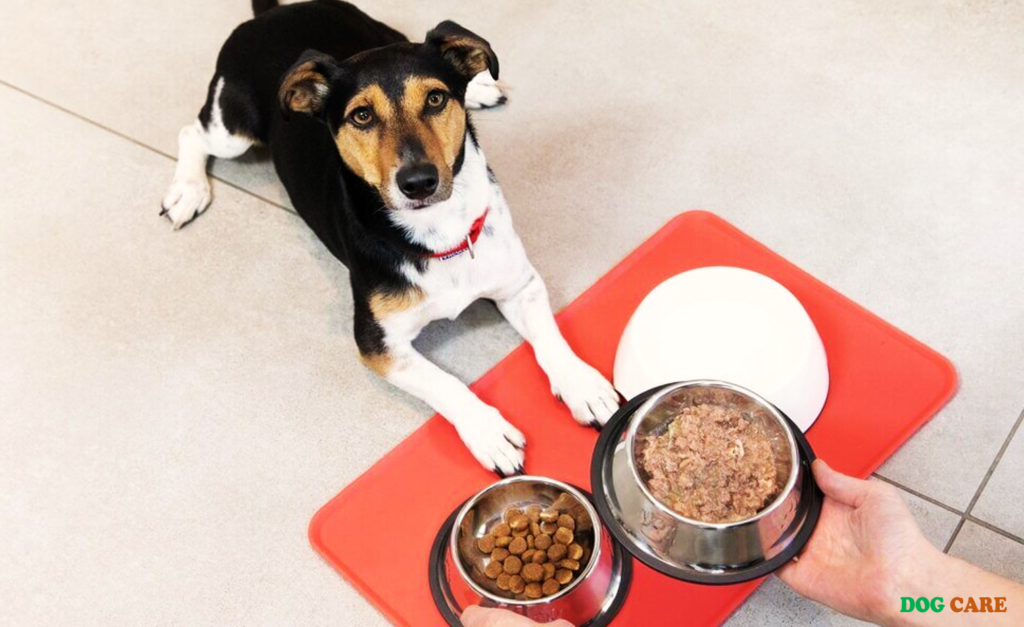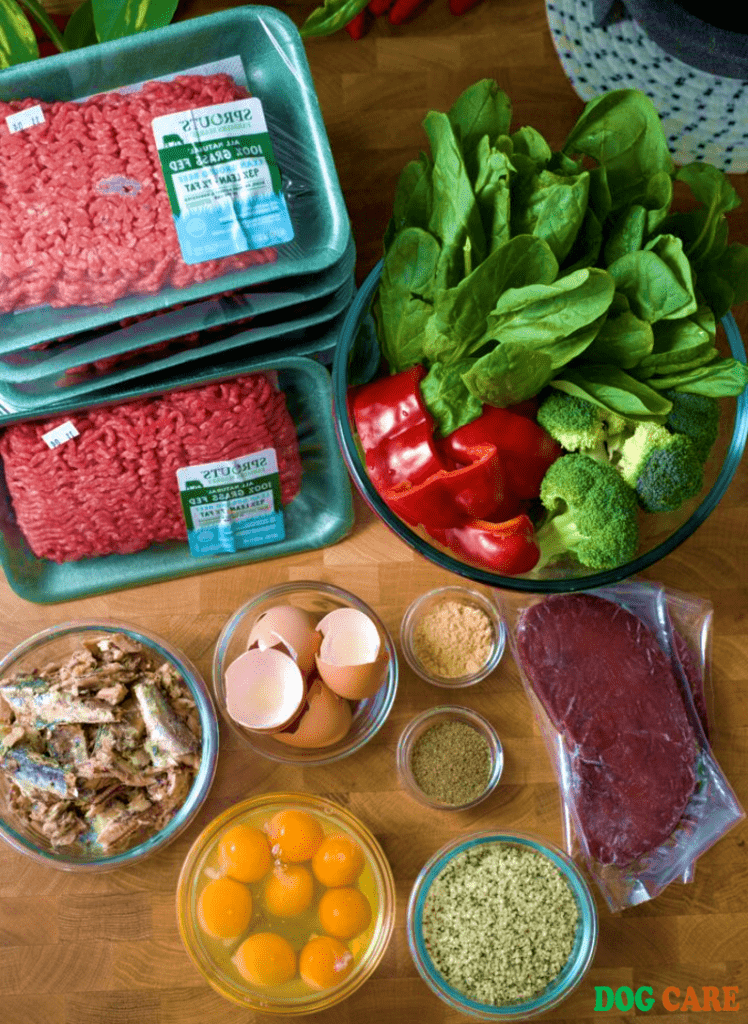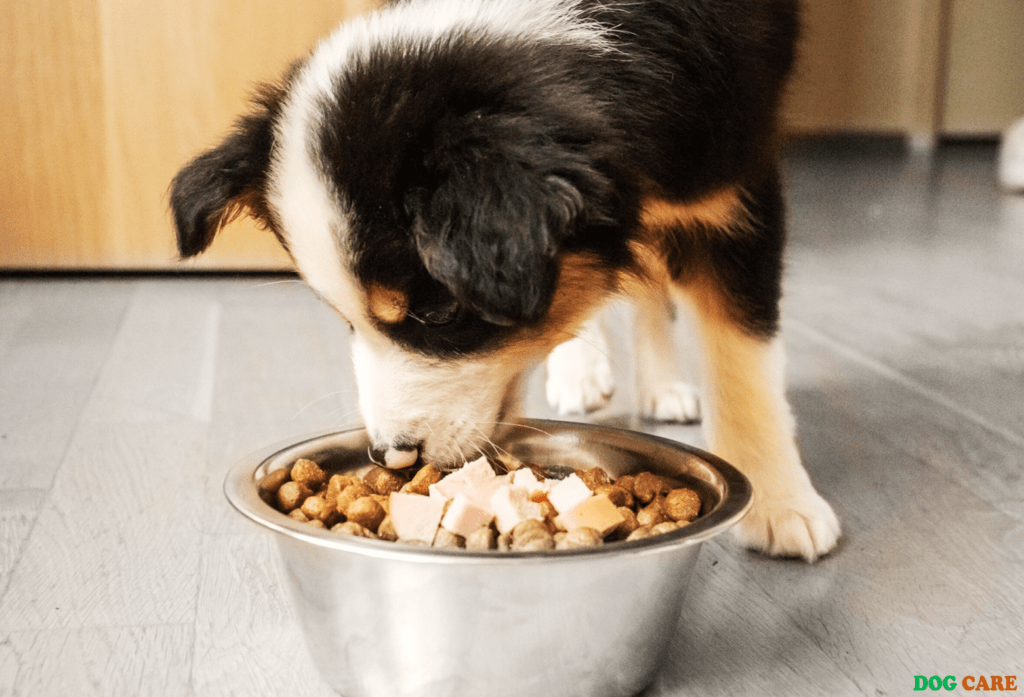Can I Feed My Puppy Adult Dog Food : Feeding adult dog food to a puppy is not recommended due to their specific nutritional needs. Puppies require a diet formulated for their growth and development.
Can I Feed My Puppy Adult Dog Food : Puppies have different nutritional requirements than adult dogs. Their growing bodies require specific nutrients, such as higher protein and fat content, to support their development. Adult dog food may lack these essential nutrients, potentially impacting the puppy’s growth and overall health.
Additionally, feeding adult dog food to a puppy could result in deficiencies in essential vitamins and minerals. It’s important to provide puppies with a balanced diet tailored to their specific needs to ensure they thrive and develop properly. Consult with a veterinarian to determine the best diet for your puppy to promote optimal health and well-being.
Can I Feed My Puppy Adult Dog Food : Puppy Nutritional Needs
When it comes to caring for a new puppy, one of the most crucial aspects is ensuring they receive the correct nutrition to support their growth and development. It’s essential to understand the specific nutritional requirements that puppies have during their early stages of life. This article will explore the importance of tailored nutrition for growing puppies and address the common question – “Can I feed my puppy adult dog food?”
Growth Requirements
Puppies have unique growth requirements that differ from those of adult dogs. During the first few months of life, puppies experience rapid growth and development, requiring a diet that supports this process. The nutritional needs of puppies are primarily focused on protein, fat, vitamins, and minerals to aid in bone and muscle development. It’s crucial to provide a diet that encourages healthy growth without excessive weight gain, which can impact joint health later in life.
Nutritional Differences
The nutritional content of puppy food varies significantly from that of adult dog food. Puppy food is specifically formulated to meet the higher energy and nutrient demands of growing pups. It contains increased levels of protein, fat, and certain vitamins and minerals to support their development. On the other hand, adult dog food may not provide sufficient nutrients to meet the specific demands of a growing puppy. Additionally, adult dog food may not have the appropriate calcium and phosphorus levels required for healthy bone development in puppies.
Adult Dog Food Vs. Puppy Food
When it comes to feeding your puppy, choosing the right type of food is crucial for their growth and development. One common question that arises is whether it’s okay to feed a puppy adult dog food. To make an informed decision, it’s important to understand the difference between adult dog food and puppy food. Let’s take a closer look at the key factors to consider when comparing the two.
Protein And Fat Levels
One of the main differences between adult dog food and puppy food is the levels of protein and fat. Puppy food generally contains higher levels of protein and fat to support the rapid growth and energy needs of young, developing dogs. On the other hand, adult dog food is formulated with lower levels of these nutrients to accommodate the lower energy requirements of fully-grown dogs.
Essential Nutrients
Puppy food is specifically designed to provide essential nutrients such as vitamins, minerals, and amino acids that are vital for a puppy’s growth and development. These nutrients are carefully balanced to support the healthy development of bones, muscles, and organs. Adult dog food, while still containing essential nutrients, may not be tailored to meet the specific needs of growing puppies.
Risks Of Feeding Adult Dog Food To Puppies
Feeding adult dog food to puppies can pose significant risks to their health and development. While it may be tempting to simplify feeding routines by sharing food between adult dogs and puppies, it’s essential to understand the potential consequences of this action.
Health Implications
Feeding adult dog food to puppies can lead to health implications due to the differing nutritional requirements of puppies and adult dogs. Puppies require a diet that is higher in protein, fat, and certain vitamins and minerals to support their rapid growth and development. Adult dog food may not provide the essential nutrients in the right proportions, leading to deficiencies that can impact the puppy’s overall health.
Developmental Issues
Puppies have specific developmental needs that must be met through a balanced diet. Feeding them adult dog food can result in developmental issues such as stunted growth, skeletal abnormalities, and inadequate brain development. The lack of proper nutrition during the crucial early stages of a puppy’s life can have long-lasting effects on their overall well-being and future quality of life.

Transitioning To Adult Dog Food
It’s important to avoid feeding puppy adult dog food too soon, as they have specific nutritional needs for growth and development. Transitioning to adult dog food should only happen once your puppy is fully grown, typically around 12 months of age.
Consult with your veterinarian for the best time to switch your puppy to adult dog food and ensure their health and well-being.
Gradual Shift
Puppies require a specific balance of nutrients to support their growth and development. As they mature, their nutritional needs change, making a transition to adult dog food necessary. When transitioning your puppy to adult dog food, it’s important to do so gradually. Abrupt dietary changes can upset their digestive system and lead to stomach issues. Over a period of 7-10 days, gradually mix in the adult dog food with their current puppy food, increasing the proportion of adult food daily until the transition is complete. This gentle approach helps your puppy adjust to the new diet without causing any digestive disturbances.
Monitoring Health
During the transition process, monitor your puppy’s health closely. Keep an eye out for any signs of digestive upset, such as diarrhea, vomiting, or loss of appetite. Ensure your puppy stays adequately hydrated and that their energy levels remain consistent. Any significant changes in behavior, bathroom habits, or physical condition should be promptly addressed by consulting a veterinarian. It’s crucial to maintain a watchful eye on your puppy’s health as they adapt to their new diet to ensure a smooth transition.
Consultation With A Pet Nutrition Expert
When considering the dietary needs of your puppy, seeking professional guidance from a pet nutrition expert is crucial. A consultation with a knowledgeable expert can provide invaluable insights into the specific dietary requirements of your puppy, ensuring that they receive the appropriate nutrition for their growth and development. Here’s why consulting with a pet nutrition expert is essential:
Professional Guidance
Consulting with a pet nutrition expert allows you to benefit from their extensive knowledge and experience in formulating customized diet plans tailored to meet the specific needs of your puppy. They can offer expert advice on the nutritional content, portion sizes, and feeding frequency required for your puppy’s optimal health and well-being.
Customized Diet Plan
A pet nutrition expert can analyze your puppy’s individual health needs, activity levels, and breed-specific requirements to create a customized diet plan that addresses their unique nutritional needs. This personalized approach ensures that your puppy receives the right balance of essential nutrients, vitamins, and minerals for their stage of growth.
Frequently Asked Questions
Can I Feed My Puppy Adult Dog Food?
Feeding adult dog food to puppies can be harmful as they require specific nutrients for growth. Puppy food has the essential nutrients for their development, while adult dog food may not provide these requirements. It’s crucial to feed puppies a balanced diet to support their growth and development.
What Are The Risks Of Feeding Adult Dog Food To Puppies?
Feeding puppies adult dog food can lead to nutritional deficiencies, growth issues, and potential health problems. Puppies have specific nutritional requirements that are met through specially formulated puppy food. Without these essential nutrients, puppies may suffer from stunted growth and health complications.
How Do I Choose The Right Food For My Puppy?
Choosing the right food for your puppy involves considering factors such as breed size, age, and any specific dietary requirements. Look for puppy-specific formulas that are labeled as complete and balanced. Consult with a veterinarian to determine the best food for your puppy’s individual needs.
Conclusion
Feeding adult dog food to a puppy may lead to nutritional deficiencies. It’s important to provide puppies with a diet specifically formulated for their growth and development needs. Always consult with a vet to ensure your puppy’s diet supports their overall health and well-being.
Stick to puppy food for the best results.


